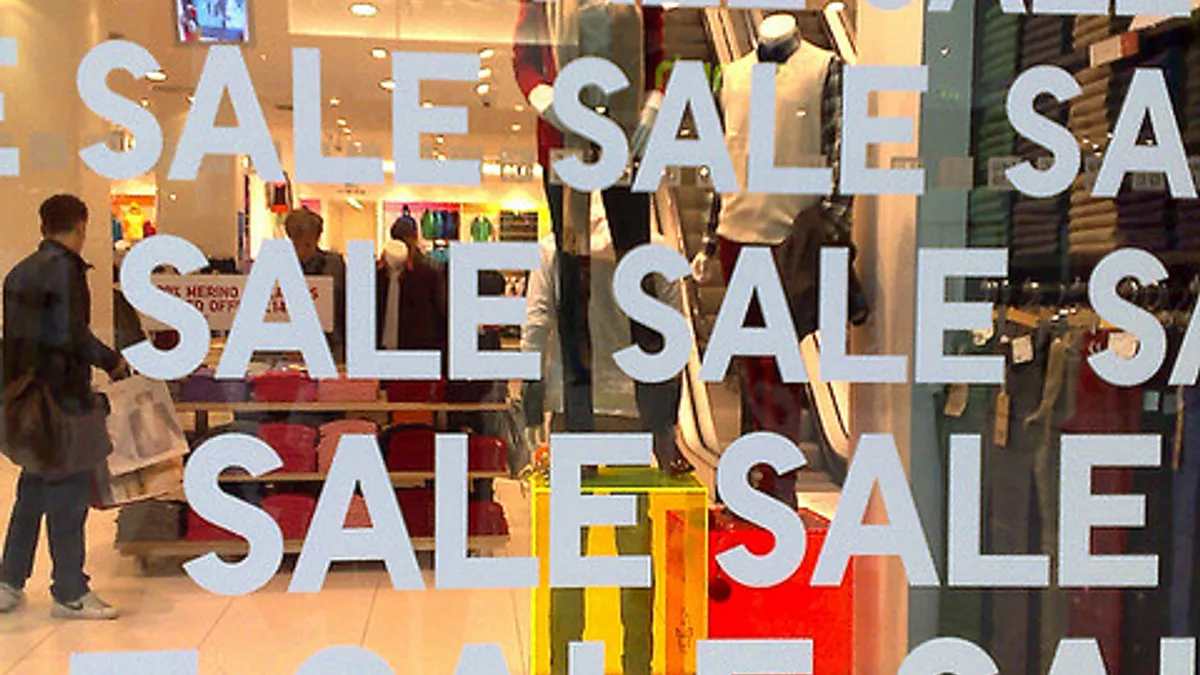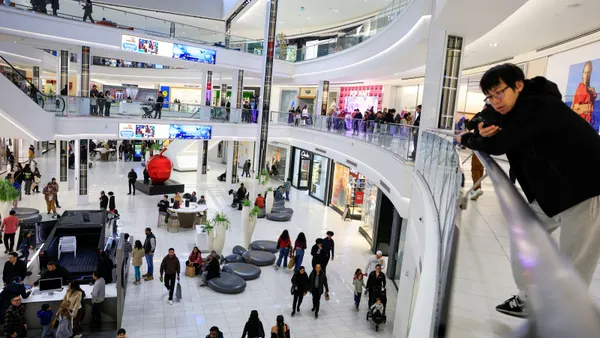Dive Brief:
-
The job situation for many U.S. consumers, including those still employed, is intensifying deal-seeking, according to GlobalData. More than half of what the firm calls "bargain hunters" are parents with children under 18 and 62% have three or more people in the household.
-
About a fifth of bargain hunters report taking a pay cut due to the pandemic, while "a further 10% are now unemployed as a direct consequence of the pandemic," according to an emailed GlobalData report.
-
The U.S. Department of Labor on Thursday reported that the number of new jobless claims rose by 53,000 week over week to 898,000, the highest since Aug. 22 and, according to Wells Fargo economists, "well above expectations."
Dive Insight:
Retailers have little to cheer about in a report showing that many of their customers, already grappling with life changes due to the COVID-19 outbreak, face continuing or even worsening financial hardship.
Even a 1.2 million decline in continuing unemployment claims signals stress, as Wells Fargo Senior Economist Sarah House warned "the drop likely reflects more workers exhausting benefits."
"The risk of the labor market's recovery going into reverse was on full display with the latest jobless claims report," House said in emailed comments.
Thursday's jobless claims data suggests that "the employment situation is fading faster than expected," and that trouble for the economy could be deeper and longer, according to Robert Frick, corporate economist at Navy Federal Credit Union.
"The long-term unemployment situation is also worsening, with the federal extended benefits program up 800,000 Americans in the latest week," Frick said in emailed comments. "This points to millions more Americans in danger of falling into the 'permanently unemployed' category, which hurts the economy long-term and moves those affected into a lower standard of living or even below the poverty line."
GlobalData expects the U.S. unemployment rate to surge from 3.66% in 2019 to 9.53% in 2020.
Getting people to buy stuff during a pandemic has already been fraught, as people dealing with in-real-life shortages of key items weren't necessarily receptive to promotions to "act now" on more frivolous ones. As retailers are entering a period when holiday marketing emphasizes consumption, these reports indicate that they will face many extremely price-sensitive consumers.
"As the number of bargain hunters continue to grow throughout the pandemic, it is important for brands to find new strategies that accommodate the needs of this consumer group — such as highlighting affordability within their pricing strategy and promotions," GlobalData Consumer Analyst Ramsey Baghdadi said in a statement. "Many brands have been accused of profiting from COVID-19, therefore, price reduction strategies will ensure long-term trust with consumers' post-COVID-19."
However, the holidays could escape the worst impact to retail, which will likely come later, especially without an agreement to renew stimulus spending, according to NFCU's Frick.
"I don't think the jobless rate and unemployment claims are going to affect retail sales, at least for the next couple months," Frick said. "There is still a tremendous amount of money saved, and people have paid down their credit lines, which opens up more spending power. However, without stimulus, this is a temporary situation and we can expect retail sales will be hurt in the first quarter of next year at the latest."















